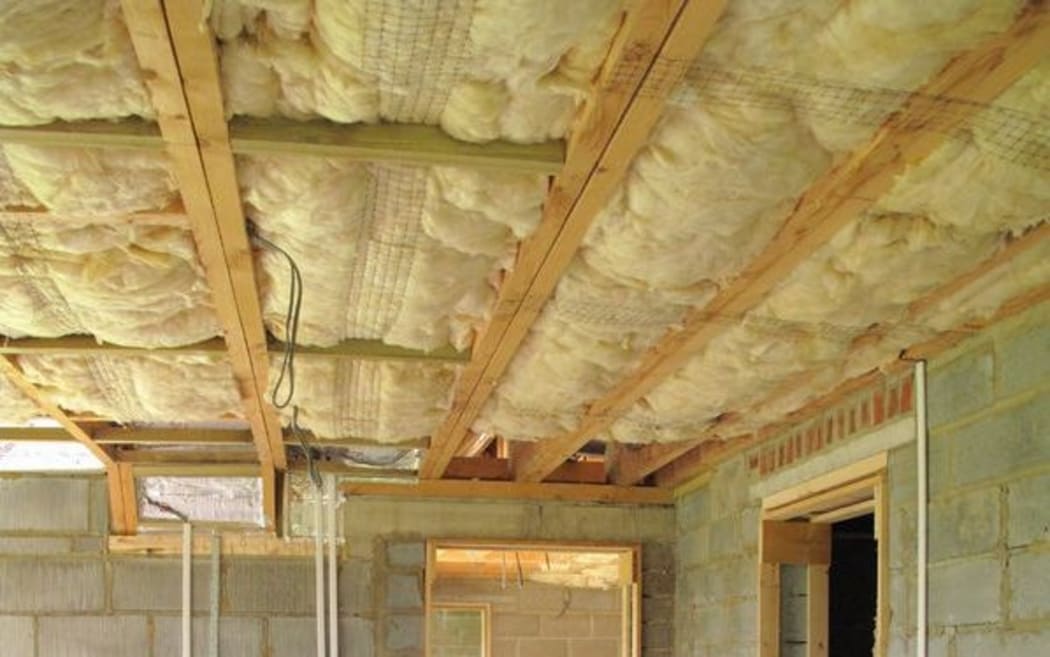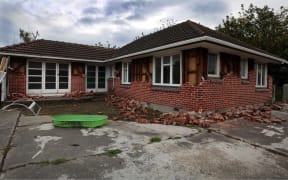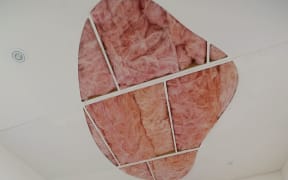Some landlords won't participate in a publicly-funded insulation scheme because they don't want to spend money on cheaper dwellings, the head of an insulation company says.

Photo: 123RF
The Healthy Homes programme makes insulation available for houses that need it most for low or no cost.
The Energy Efficiency and Conservation Authority (EECA) said it had reached 36,117 houses nationwide since it started two years ago, but those putting in the insulation said it was not without stumbling blocks.
South Auckland resident Piri Williams has just had her home insulated, after living in a damp house for 15 or so years.
"The amount of water that I've collected over the years, I would, to be honest, have filled a big tank at the back of my house," she said.
Ms Williams said she had been sceptical about the insulation programme at first, but was pleasantly surprised.
"There's no hidden agenda, there's no catch ... like for a lot of us from the Pacific Islands and other ethnic groups, the first question will be - 'is it free?' " she said.
The owner of the company that installed the insulation, Paul Thomson, said many poor families feared insulating their homes would cost them in some other way.
"We have tenants who are scared if their landlord does put in insulation, their rent will increase," he said.
Many landlords don't bother
Mr Thomson said landlords could also be tough to wrangle.
"A lot of landlords don't see it as an investment for their own property, they see it, I believe, in particular with low socio-economic areas, it's a small investment and they don't want to overcapitalise in the cheaper dwellings," he said.
"I think laziness is a good word ... this may open up other issues with the houses, they may see it as a threat if the houses are under-standard, or in a poor state, maybe they are worried about being opened up to other problems they have."
But experts in the property industry could not understand why landlords would turn their nose up at free or cheap insulation.
The director of Barfoot and Thomspson, Kiri Barfoot, said most landlords they dealt with were on board.
"They think it's a great idea and the ones that do take it up do find the tenant does appreciate it and stay longer, and over the long term they can get more money for the property and have more choice of quality tenants," she said.
Some don't want to spend
"Some landlords are reluctant to spend money at all, not matter what it is, no matter if it's subsidised, and for others it's probably on the list of things to do and they just haven't got around to it - that's why we suggest it to them."
The president of the Property Investors Federation, Terry le Grove, said even though the scheme was subsidised, there had been some rumblings of discontent about the cost.
"There has been some disquiet about some of the costings of the scheme ... sometimes it's more cost efficient to buy the bales yourself out of a store, and install it yourself," he said.
The EECA said it had insulated over 7,700 homes in Auckland so far, and almost 3,000 of them were rentals.
A spokesperson said when the programme's time was up next year, EECA aimed to have 46,000 homes insulated.
Rental standards must rise
A professor of public health at the University of Otago in Wellington, Philippa Howden-Chapman, said it was critical that New Zealand adopted minimal standards for rental housing.
Dr Howden-Chapman said the latest census showed over a third of New Zealanders were living in rental housing for longer, and it was no longer just students.
"We now know seven out of 10 children are in low income housing, and mostly this is private rental housing," she said.
"If this was secure housing, and you could stay in it and not be asked to leave at 90 days, and it was good quality, it wouldn't be a concern."
She said the average length of time families were staying in rental housing was about a year, and part of what was driving them out was low standards.
Dr Howden-Chapman said it was most important for children and elderly people.
She said if a person was living in a mouldy house, they were more likely to suffer respiratory problems, allergies, and cardiovascular problems.




